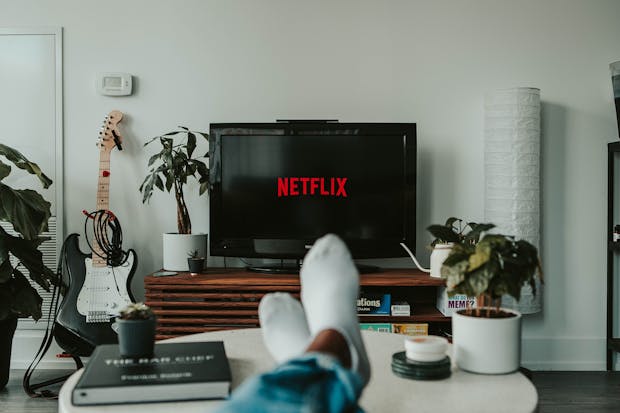
streaming platforms are evolving
Netflix is currently the global market leader when it comes to streaming platforms and consumes 15% of the world’s internet bandwidth. it’s also valued at a staggering $220 billion. its original productions have garnered critical appeal and have won Golden Globes, Emmys, and Oscars.
but Netflix isn’t sitting on its laurels. it is evolving and so are its competitors. after an initial spurt following the outbreak of the pandemic, streaming subscription growth has slowed down across the board. many TV networks such as HBO are paywalling their content with streaming platforms of their own and audiences are beginning to suffer from subscription fatigue.
OTT platforms are not just competing against each other, they’re also fighting for attention against games and short video apps. currently, users spend over three hours a day on Netflix, eight-to-ten hours a week playing online, and 30 minutes a day on Instagram. time spent gaming is going up and so is time on Instagram.
different strategies are beginning to take shape.
dial M for merchandise
in terms of line items on its balance sheet, Disney’s second biggest contributor to its revenue is parks, experiences and products. the House of the Mouse made $16.5 billion in 2020 from that avenue.
but its parks were shut almost throughout the year. so most of its money under that head was made on merchandise. it sells everything from Thanos bobblehead dolls to t-shirts with Darth Vader on them. Disney fans are always hungry for more.
Netflix is following suit. it plans to sell t-shirts, toys, accessories, streaming concert tickets, and more via its official shop which launched earlier this month. it's also offering a high-fashion collection in partnership with the US brand founded by designer Roy Halston, whose biography is streaming on the platform.
Amazon, meanwhile, is leveraging its partnership with NFL to sell officially licensed products so the e-commerce platform becomes the one-stop shop for fan gear.
keep it short
while TikTok and Instagram have to work hard with their users to create good viral content, Netflix already has the content. it launched the Fast Laughs app which features popular comedic clips from its catalogue and lets users share them across platforms. some Netflix shows, especially documentaries, are now available in podcast form as well.
games they play
both Amazon and Netflix are taking on gaming. Disney has a deep library of games in both Star Wars and Marvel universes. the simple reason all three are pushing for gaming is the growing demand for active entertainment. gaming is already larger in terms of revenue than movies and music combined.
its own universe
Disney currently owns some of the most sought-after franchises in the world, which include Marvel, Star Wars, and Frozen. Amazon, meanwhile, recently acquired MGM whose nearly-century-old catalogue includes the James Bond and Rocky franchises, among many other hits.
then there is HBO, which likes to model itself as a content destination for connoisseurs and has the massively popular Game of Thrones and Harry Potter titles in its library. Netflix has Stranger Things and is trying to build a franchise around Zach Snyder’s Army of the Dead, which will have a prequel, sequel and a spin off TV show. it has also acquired the rights to Neil Gaiman’s Sandman.
there is a thread across all of these companies, they all have universes. A single franchise which spawns other films, TV shows, games, and books.
imagine a world where you watch a superhero film on, say, Netflix. if you enjoyed watching it, Netflix prompts you to play a game where you’re the main character and fulfill missions. at the end of this, it asks, do you want to buy the superhero’s catchphrase on a t-shirt?
it is a universe that seems slightly alien but that’s the reality that streaming platforms are trying to build. and it's coming to our TV screens faster than anyone imagined it would.



